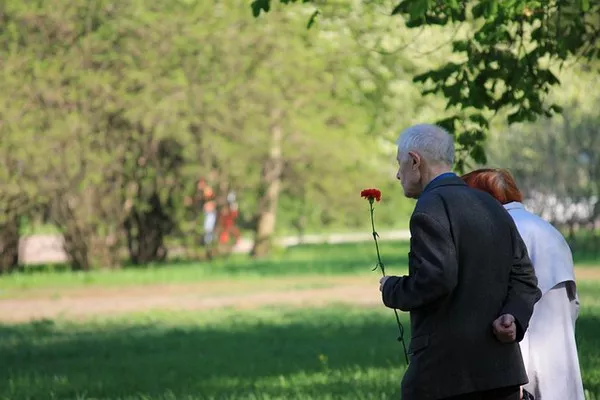Throughout history, flowers have held a special place in the hearts of people from diverse cultures and backgrounds. Beyond their aesthetic appeal, flowers have been revered for their healing properties, both physical and emotional. The concept of flowers as healers dates back centuries, with numerous cultures incorporating them into their traditional medicine and rituals. In this article, we will explore the profound connection between flowers and healing, shedding light on the therapeutic benefits they offer and the science behind their remarkable properties.
Historical Perspective
The use of flowers for healing purposes can be traced back thousands of years to ancient civilizations such as the Egyptians, Greeks, and Romans. In these societies, flowers were not just symbols of beauty but were also considered powerful tools for promoting physical and emotional well-being.
One notable historical figure who recognized the healing power of flowers is the ancient Greek physician Hippocrates, often referred to as the “Father of Medicine.” Hippocrates used various flower extracts and infusions to treat a wide range of ailments. His teachings laid the foundation for modern herbal medicine, emphasizing the importance of harnessing the therapeutic potential of plants, including flowers.
Flowers in Traditional Medicine
Across the world, indigenous cultures have long utilized flowers as integral components of their traditional healing practices. Native American tribes, for instance, used a variety of wildflowers to concoct remedies for pain relief, wound healing, and even spiritual healing ceremonies. Similarly, Ayurvedic medicine, an ancient Indian healing system, incorporates flowers like marigold and jasmine into herbal remedies to balance the body and mind.
The Chinese traditional medicine system, which dates back over 2,500 years, also recognizes the significance of flowers. Practitioners of Traditional Chinese Medicine (TCM) use flower-based remedies to address various health issues, from stress and anxiety to digestive problems and skin conditions. The Chinese believe that each flower possesses unique properties that can help restore harmony and balance in the body.
Science Behind Flower Healing
While the historical use of flowers for healing is compelling, modern science has provided a deeper understanding of the mechanisms through which flowers exert their therapeutic effects. The healing properties of flowers can be attributed to their chemical composition, which often includes a wide range of bioactive compounds such as phytochemicals, essential oils, and antioxidants.
Phytochemicals: Flowers contain phytochemicals that have been shown to have anti-inflammatory, antimicrobial, and antioxidant properties. These compounds play a vital role in reducing inflammation, combating infections, and protecting cells from oxidative stress, all of which are essential for maintaining good health.
Essential Oils: Many flowers produce essential oils with distinct aromas and therapeutic properties. Lavender, for example, is well-known for its calming and sedative effects, making it a popular choice for promoting relaxation and reducing anxiety. Essential oils extracted from flowers are commonly used in aromatherapy to improve mood and reduce stress.
Antioxidants: Flowers are rich in antioxidants, such as flavonoids and polyphenols, which help neutralize harmful free radicals in the body. Free radicals are implicated in various chronic diseases, so the presence of antioxidants in flowers can contribute to overall health and longevity.
Emotional Healing
The healing power of flowers extends beyond physical well-being; they also have a profound impact on our emotional health. The practice of using flowers to convey emotions and support mental well-being is known as “flower therapy” or “floral therapy.” Here are some ways in which flowers can promote emotional healing:
Stress Reduction: Studies have shown that simply being in the presence of flowers can reduce stress and anxiety levels. The vibrant colors and pleasant fragrances of flowers can have a calming effect on the mind, helping to alleviate tension and promote relaxation.
Mood Enhancement: Flowers have the ability to uplift spirits and improve mood. Giving or receiving flowers can create a sense of happiness and emotional well-being. The act of tending to a garden or arranging flowers can also be therapeutic and provide a sense of accomplishment.
Grief and Healing: Flowers have long been associated with expressing condolences and offering comfort to those who are grieving. They symbolize hope and renewal, helping individuals cope with loss and find solace during difficult times.
Connection to Nature: In our increasingly urbanized and digital world, flowers serve as a reminder of our connection to nature. This connection is essential for our mental and emotional well-being, as it provides a sense of grounding and perspective.
Practical Applications
The healing power of flowers is not limited to historical practices and scientific theories; it is a concept that continues to be applied in various modern contexts. Here are some practical applications of flower healing today:
Aromatherapy: Aromatherapists use flower-based essential oils to treat a wide range of conditions, from stress and insomnia to skin issues and respiratory problems. The inhalation or topical application of these oils can have powerful therapeutic effects.
Flower Essences: Flower essences, such as Bach flower remedies, are tinctures made from the infusion of flower petals. These remedies are used to address emotional imbalances and promote mental well-being. Each flower essence is believed to address specific emotional issues.
Floral Design Therapy: The art of flower arrangement is not only a creative pursuit but also a form of therapy. Floral design therapy allows individuals to express themselves artistically while benefiting from the calming and mood-enhancing effects of working with flowers.
Conclusion
The healing power of flowers has deep historical roots, and modern science continues to unveil the remarkable properties of these botanical wonders. From their phytochemicals and essential oils to their ability to soothe emotions and reduce stress, flowers have a multifaceted role in promoting health and well-being.
As we navigate the complexities of modern life, it is important to remember the simple yet profound impact that flowers can have on our physical and emotional health. Whether through aromatherapy, flower essences, or simply enjoying a bouquet of fresh blooms, integrating flowers into our daily lives can be a delightful and therapeutic practice that reconnects us with the healing forces of nature.


